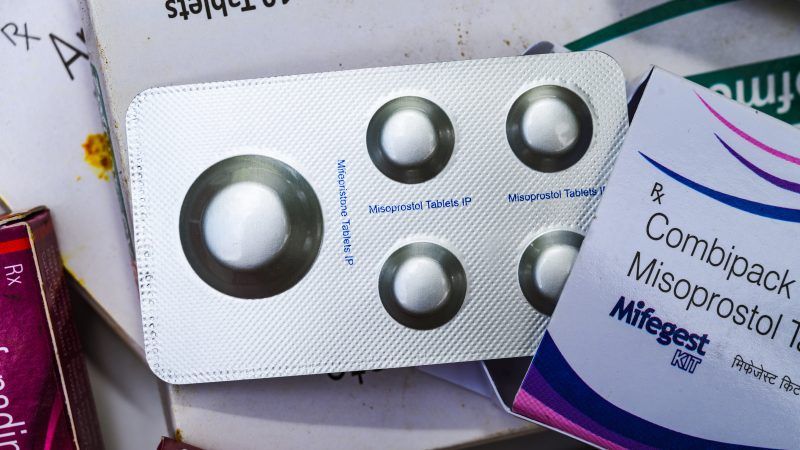What's at Stake in the Supreme Court's Abortion Pill Case
The Court announced today that it would take up a case involving access to the abortion-inducing drug mifepristone.

The Supreme Court announced this morning that it would take up a pair of cases concerning access to mifepristone, the first pill in a two-pill regimen commonly used to induce abortion. Mifepristone has been the subject of a high-profile legal battle throughout the past year.
Crucially, the Court will not consider whether the U.S. Food and Drug Administration (FDA) erred in its initial 2000 approval of the Mifeprex (a brand name version of mifepristone) or its subsequent generic approval in 2019—which means the pill should remain legal no matter what SCOTUS decides. Rather, the Court will consider whether subsequent FDA rules regarding mifepristone's prescription are valid.
At stake is whether doctors may prescribe mifepristone virtually, whether prescriptions can be shipped by mail, and whether it can be prescribed up to 10 weeks of pregnancy (instead of stopping at seven weeks).
Judge Matthew Kacsmaryk of the U.S. District Court for the Northern District of Texas held in April that the whole approval process was tainted. According to Kacsmaryk, the FDA erred when it approved the drug initially and when it approved generics in 2019. The judge also agreed with the Alliance for Hippocratic Medicine—the group that brought the case—that the FDA's subsequent loosening of rules around prescribing mifepristone had been wrong.
Kacsmaryk suspended access to the pill entirely, but the Supreme Court paused enforcement of this decision while appeals were being resolved.
On appeal, the U.S. Court of Appeals for the 5th Circuit rejected Kacsmaryk's ruling with regard to the initial FDA approval and its later generic approval. But the 5th Circuit upheld his ruling with regard to the later loosening of prescription rules, including the FDA's decisions to allow lower-dose prescriptions, virtual prescriptions, and shipping the drug through the mail.
Following the 5th Circuit's ruling, the Biden administration and Mifeprex maker Danco Laboratories asked the Supreme Court to take up the case and find that the 5th Circuit was wrong with regard to the parts of Kacsmaryk's decision that it upheld. The Alliance for Hippocratic Medicine asked the Court to take up the case and find that the 5th Circuit was wrong with regard to the parts of Kacsmaryk's decision that it rejected. The justices met last week to decide what to do.
Today, the Court announced that it would hear the issue, consolidating the cases from Danco laboratories and the Biden administration. It declined to hear the cross-petition filed by the Alliance for Hippocratic Medicine.
"What's most important to know is that SCOTUS will not be looking at the original challenge to FDA approval of the drug," notes Jessica Valenti of the Abortion, Every Day Substack. "Instead, they'll review the 2016 and 2021 changes to restrictions around mifepristone, and whether or not the Alliance of Hippocratic Medicine (the anti-abortion group who brought the lawsuit) has standing."
"The decision here will undoubtedly affect the availability of mifepristone, but the case no longer includes the question of whether the FDA should have approved mifepristone for the purpose of terminating pregnancies in the first place," explains Jonathan H. Adler at The Volokh Conspiracy.
This is—as Law Dork's Chris Geidner points out—"a best-case scenario for abortion rights supporters." It leaves intact the general approval of mifepristone while opening up the possibility of reversing the 5th Circuit's ruling regarding eased access to the drug.


Show Comments (56)